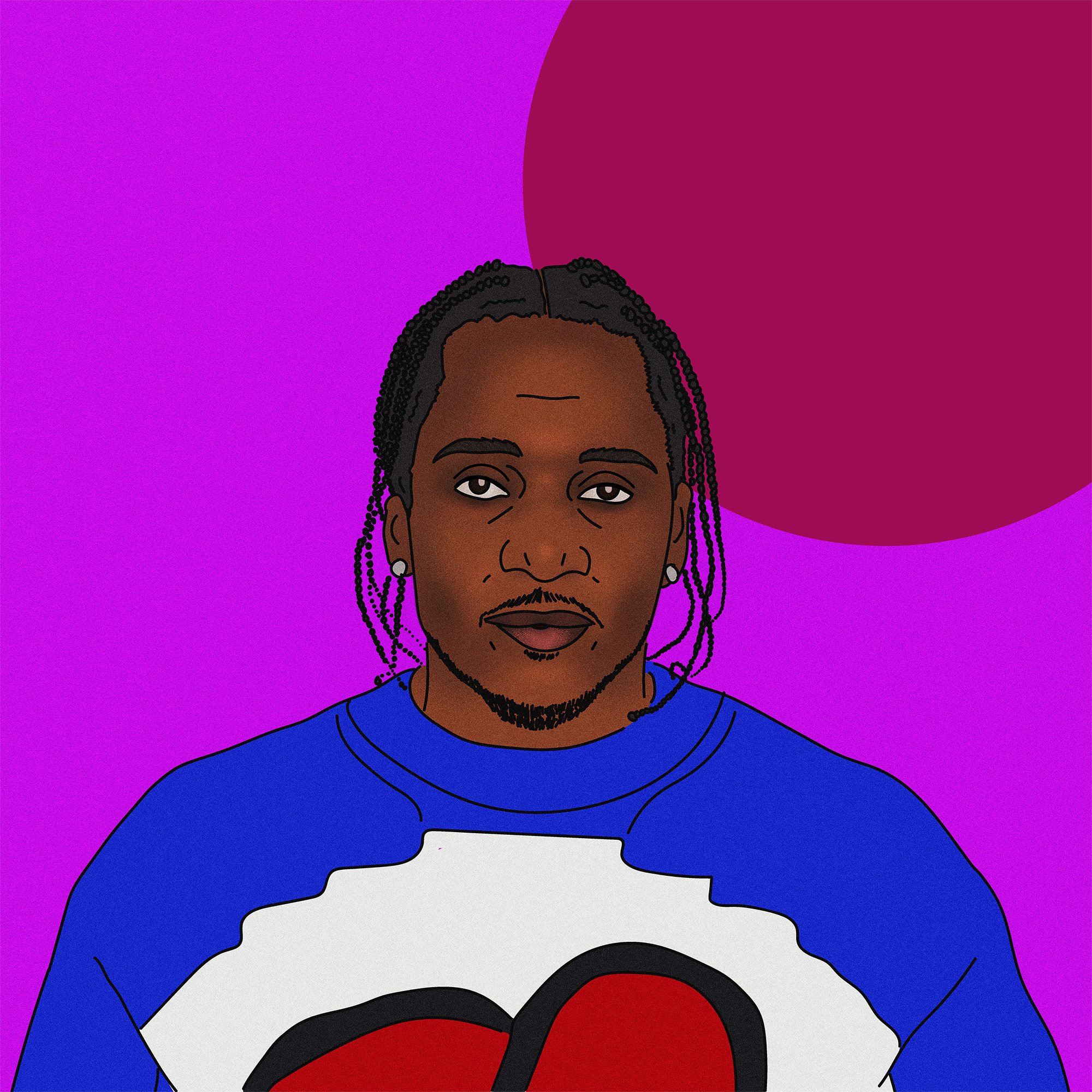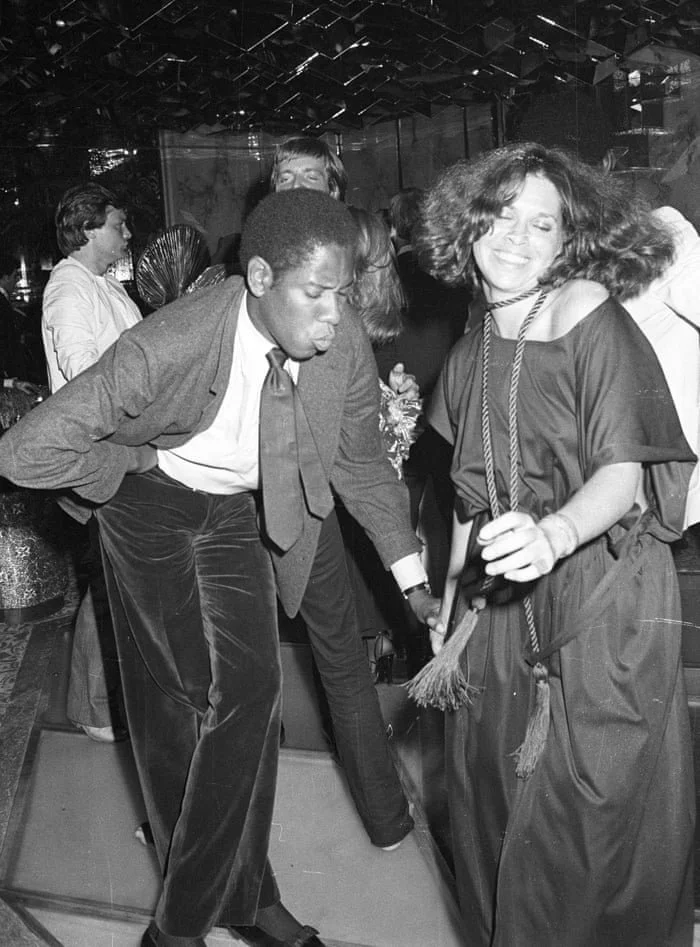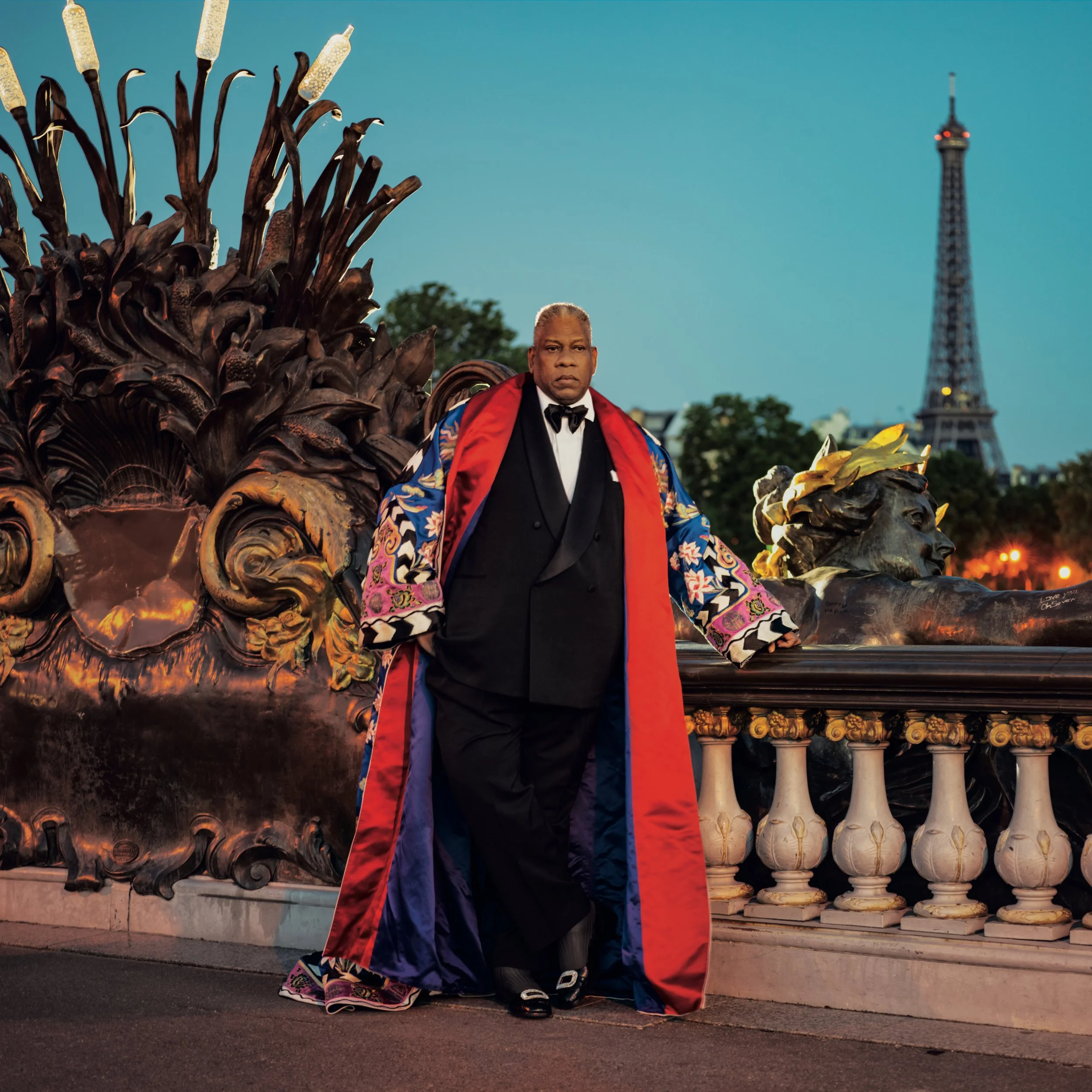André Leon Talley In Quotes
André Leon Talley in his own words.
Following the passing of André Leon Talley, we took a look at the editor’s old interviews and his memoir “The Chiffon Trenches,” and compiled a list of interesting quotes related to life and his time in Paris.
“They had chosen me. So Paris was my oyster. I never felt Karl and Yves thought of me as anything but one of the players who counted. We all had a certain way of being and we came together as units, little cliques of ego, glamour, and power. I was fully a part of this machine. I wasn’t supposed to be a fashion editor. I wasn’t supposed to be in Paris. And I certainly wasn’t supposed to be on the front row. Yet there I was.”
“I went to Brown University to be a French professor, and I didn't know what I was doing, except that I loved French. When I got to Paris, and I could speak French, I know how much it helped me to establish relationships with Karl Lagerfeld, with the late Yves Saint Laurent. French, it just helps you if you're in fashion. The French people started style.”
“I came to Paris with 13 unmatched pieces of luggage. By the time I left, I had 34 matched sets. And, I paid for all of them. I paid for each piece.”
In Paris, in those days, you didn’t have to pay taxes if you worked for an American company. That’s why I went to Louis Vuitton. Every paycheck I went and bought another suitcase.”
“I had dinners alone and I didn’t do lines of coke. I was not sexually promiscuous at all. I was fierce and smart and I did not exude that sexual energy. I wanted people to like me because I was smart, not for my Black sex vibe!”
“I have terrible problems with my finances. I consider myself a very creative person, I know nothing about finances. Back in the day, you could go to Hermès in Paris and could have a charge account. That does not happen now… When I got my first huge, oversized, customized Hermès, I was with Anna Wintour, in Hermès, we were walking around then then they bought out my bag. She said, what are you buying this for? I said, well, it’s so fabulous. It’s beautiful. I said, it’s the down payment of a house —the price of this bag. But, they let me pay for it on layaway! So for years I was going in and getting things on layaway.”
“So many women and men —gay, straight, gender fluid and transgender— and designers owe much to the Betty [Catroux]/Yves female-dandy style.”
“Paris offered great characters and subtle intrigues, promiscuity, drugs, scandals—a whole different world from where I had grown up. In Paris, I was always seated on the front row at the couture and ready-to-wear catwalk shows, the only black man among a sea of white titans of style. Betty Catroux remarked that I “suddenly became king of Paris overnight.” And through it all I wrote. And wrote. And wrote.”
“I never felt like an outsider in Paris, but there were definitely those who saw me as such. And behind my back, they were talking about it. I had confidence, I knew what I was doing, I knew when I talked to someone I had the background to talk to them. I felt inside the circle, the inner sanctum of high fashion. When most people avoided me in Paris socially (they accepted me professionally because of my job at WWD), Betty Catroux loved me and accepted me for who I was, not for what I did. That was rare in fashion circles.”
“People in North Carolina were not outside-the-box thinkers; they were straight, rigid, and judgmental. And now here I was, in Paris, discovering these fascinating people, and yes, I felt liberated in certain ways, but I did not feel totally free. Up until then I had mostly worn suits to work, beautifully made suits, yes, but always the comportment of rigid professionalism. I was aware I was the only black person sitting on the front row in Paris at the haute couture. There was a corresponding pressure that I had to behave a certain way. I felt a responsibility, as a black man, not to f——k up.”
“Love has not been in my life in any degree. I never learned how to maintain strong self-worth when it came to two people getting down, literally clinging to each other. Yet, I have found love in little interludes of innocence or wonderful, life-enhancing bonds, and friendships that grew out of respect, affection, and admiration. I have had many emotional highs and definite lows when it comes to love and romance, and yet I am alone.”
“Upon entering, Madame Oxeda herself greeted us. It was the first time I ever saw a black woman shop in Paris, and Diana shopped just like the society women I had come to know.”
“I was thunderstruck; if you were a star and black, from the United States, you could go shopping for diamonds in Paris, and like in the movies, they never asked for a credit card or check.”
“Paris embraced black culture; of course they pirated a lot of things from black culture, too. This was part of a French tradition going back to Josephine Baker, this little girl, a child born in Saint Louis of a poor background, who went from the end of the chorus line in Harlem to stardom in Paris.”
“Racism is systemic everywhere, but no one in Paris talked about race. Racism was always underneath, sleeping below the epidermis of everything I did. It was mostly dormant but would raise its head every so often. I knew my very being was shocking to some people. That I was black, sure, but also that I was so tall and thin, that I spoke French meticulously. I had a strong opinion and I looked people in the eye. I didn’t turn away. I may have been insecure but I was never shy. My knowledge and my passion and love for fashion and literature and art and history gave me confidence. I was in Paris to edit and style pictures, and I intended to do so successfully. I was living my moment. My dream achieved.”
Citations: Talley, André Leon. The Chiffon Trenches. Random House Publishing Group. Kindle Edition.






